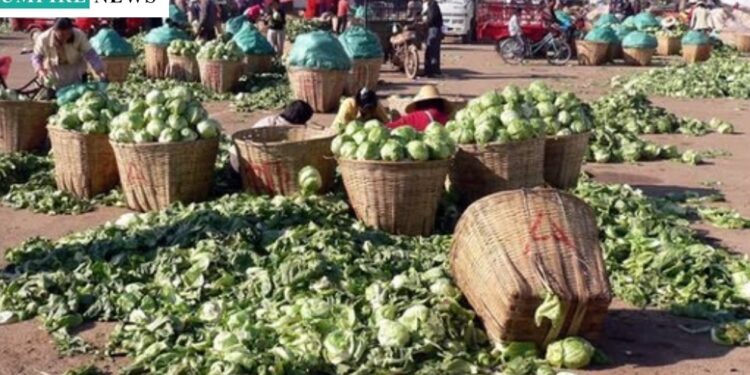Nigeria is facing a significant challenge in food waste, with approximately 40% of its food production lost annually,
valued at around $9 billion.
This staggering loss highlights the need for effective solutions to address food waste and ensure food security.
Professor John Derera, Senior Director of Breeding and Pre-Breeding at the International Institute for Tropical
Agriculture, emphasized the importance of tackling food waste to boost exports and strengthen the economy.
The country’s food insecurity situation is alarming, with about 22 million people experiencing persistent hunger
between 2019 and 2021. Moreover, Nigeria spends around $52 billion annually on food importation, while 40% of its
food production is lost to waste.
This loss occurs across the value chain, from post-harvest handling and storage to distribution and consumption.
To address food waste, experts recommend investing in best farm practices that optimize yield per hectare,
strengthening supply chain infrastructure, and improving storage, transportation, and distribution systems.
Additionally, government support for local food processing industries can add value to raw agricultural products. This
includes investing in food processing equipment, creating a favorable policy environment, and providing training to local entrepreneurs.
Ajayi Crowther University has taken steps to address food waste and hunger by establishing a full-fledged seed
company, ACU Seeds Limited, in 2022. The seed company has recorded remarkable success in developing,
commercializing, and disseminating quality seeds of pro-vitamin A biofortified maize varieties.
You may also like: Lagos State Denies Plans to Ban Sachet Water
This initiative aims to reduce crop losses due to poor seed planting and promote sustainable agriculture.
To reduce food waste and ensure food security, Nigeria can implement several strategies. These include ensuring
safe food donation by amending the National Agency for Food and Drug Administration Act, reducing food waste
through date labeling, providing liability protection for food donors, offering tax incentives for food donations, and creating government grant opportunities for food donation infrastructure.
By implementing these strategies, Nigeria can reduce food waste, ensure food security, and promote sustainable
agriculture. The country’s ability to feed its population and strengthen its economy through food exports depends on its ability to address food waste and promote sustainable agricultural practices.
Nigeria’s food waste problem is a significant challenge that requires immediate attention. The country’s food security
situation is precarious, and the loss of 40% of its food production to waste is unacceptable. It is essential for the government and stakeholders to work together to address this challenge and ensure food security for all Nigerians.
The International Institute for Tropical Agriculture and Ajayi Crowther University are working together to address food
waste and promote sustainable agriculture. Their initiatives, such as the establishment of ACU Seeds Limited, are commendable and deserve support.

































